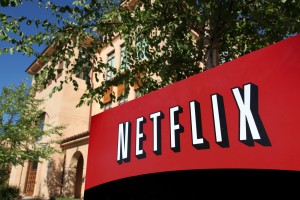Internet video player Netflix has struck yet another peering agreement with a US carrier, this time AT&T, essentially paying for better quality of service for customers using the provider's network. The deal was confirmed by AT&T and sits against a background of uproar over network neutrality debate in the US.
July 30, 2014

Internet video player Netflix has struck yet another peering agreement with a US carrier, this time AT&T, essentially paying for better quality of service for customers using the provider’s network. The deal was confirmed by AT&T and sits against a background of uproar over network neutrality debate in the US.
AT&T confirmed that the interconnect agreement with Netflix was struck in May and has seen the carrier provisioning extra capacity for Netflix subscribers using its network. It was previously revealed that Netflix is also paying Verizon and Comcast for similar treatment.
But as the debate over net neutrality rumbles on in the background, such moves are somewhat dangerous for Netflix, which has long argued against paying operators for improved quality of service. The internet video firm publishes an index informing users what their experience will be like on various networks around the world. The US experience has sat at the lower end of the spectrum and reports suggest the Netflix experience on Verizon still isn’t up to muster even since the peering agreement has come into play.
And Netflix has been vocal about arguing against the implementation of peering agreements in the first place. In March of this year, co-founder and CEO of Netflix, Reed Hastings, said that sharing costs with internet services providers “makes no sense” for the firm.
In a blog posting Hastings criticised the nation’s larger ISPs for charging “potentially escalating fees” to over the top (OTT) service providers to ensure quality of service on access networks. He noted that ISPs often cite the burden that OTT service providers place on their networks, but argued that it is not rational for OTTs to supplement ISPs’ costs.
“ISPs sometimes point to data showing that Netflix members account for about 30 per cent of peak residential internet traffic, so the ISPs want us to share in their costs,” said Hastings. “But they don’t also offer for Netflix or similar services to share in the ISPs revenue, so cost-sharing makes no sense. When an ISP sells a consumer a 10Mbps or 50Mbps internet package, the consumer should get that rate, no matter where the data is coming from.”
The Broadband World Forum is taking place on the 21st – 23rd October 2014 at the RAI Exhibition and Convention Centre, Amsterdam. Click here to download a brochure for the event.
About the Author(s)
You May Also Like








.png?width=300&auto=webp&quality=80&disable=upscale)


_1.jpg?width=300&auto=webp&quality=80&disable=upscale)


.png?width=800&auto=webp&quality=80&disable=upscale)